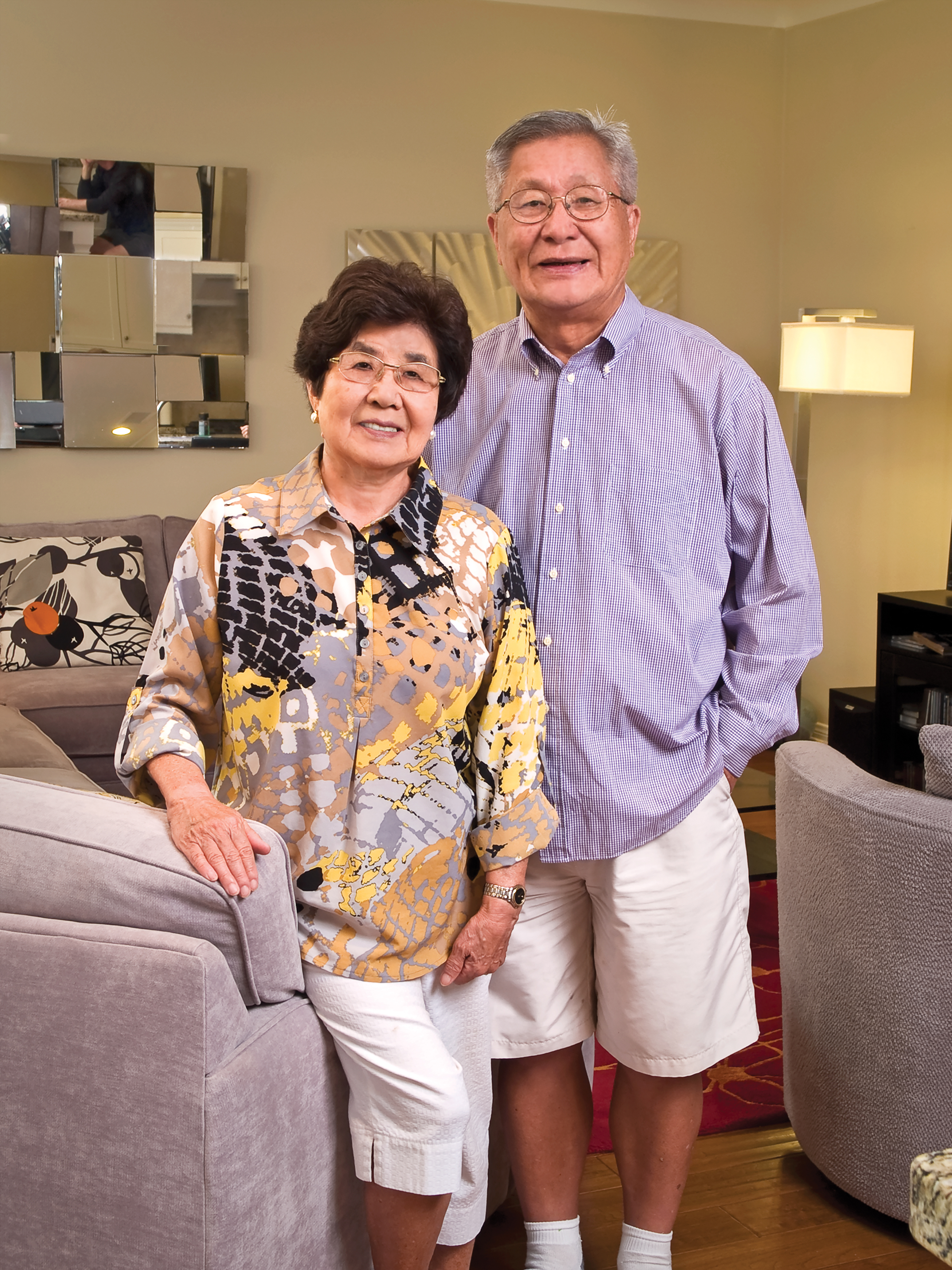
Born in Korea, Dae Y. was admitted to a combined program with MIT and Ripon College in Wisconsin, earning a bachelor’s degree in mechanical engineering in 1958. After working two years at a Milwaukee steel company, he earned a master’s from MIT in 1962 and a PhD in 1965, both in materials science and engineering. For 20 years, he worked at General Electric Research Laboratory in Schenectady, New York, and later he was appointed professor of mechanical engineering at Rensselaer Polytechnic Institute (RPI). While at GE and RPI, he published more than 150 papers. He retired in 2001. Youngja earned a degree from Seoul National University, a master’s in textile engineering from Lowell Technical Institute, and a master’s in computer science from Union College. After growing weary of New York winters, the couple headed to the West Coast, where they now enjoy good weather, good food, and good friends.
Dae Y.: “I participated in an undergraduate project when I was a senior and enjoyed every minute of it. After I retired, I thought it would be good to help undergraduates, so we made a gift to the Undergraduate Research Opportunities Program (UROP). It’s a real win-win situation. Students get away from the normal routine of quizzes and exams and gain new experiences that help them do insightful research, while professors have the opportunity to do research with a highly motivated student. I was a faculty member at Rensselaer Polytechnic Institute for a long time and was happy to give students a chance to work in the lab. I enjoyed working with promising and responsible students, knowing that undergraduate research prepares them for the future. I’ve invested in MIT because I got a great education that affected the course of my life. On every occasion, my MIT degrees helped my professional career. We hope that students who participate in UROP will gain the same experience.”
Please consider your own gift to MIT.
For information, contact David Woodruff: 617-253-3990; daw@mit.edu. Or visit giving.mit.edu.
Keep Reading
Most Popular
Large language models can do jaw-dropping things. But nobody knows exactly why.
And that's a problem. Figuring it out is one of the biggest scientific puzzles of our time and a crucial step towards controlling more powerful future models.
The problem with plug-in hybrids? Their drivers.
Plug-in hybrids are often sold as a transition to EVs, but new data from Europe shows we’re still underestimating the emissions they produce.
How scientists traced a mysterious covid case back to six toilets
When wastewater surveillance turns into a hunt for a single infected individual, the ethics get tricky.
Google DeepMind’s new generative model makes Super Mario–like games from scratch
Genie learns how to control games by watching hours and hours of video. It could help train next-gen robots too.
Stay connected
Get the latest updates from
MIT Technology Review
Discover special offers, top stories, upcoming events, and more.